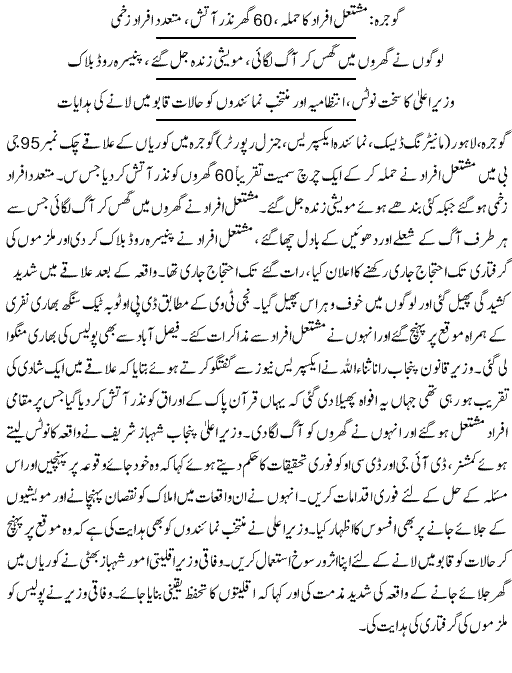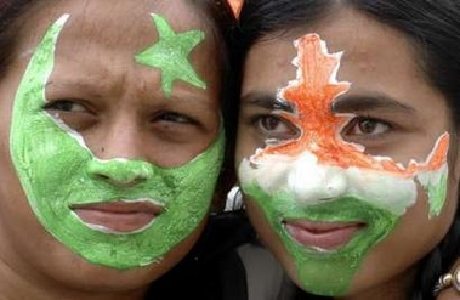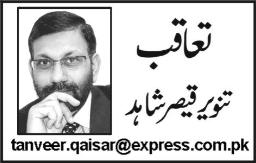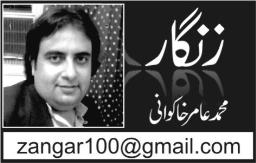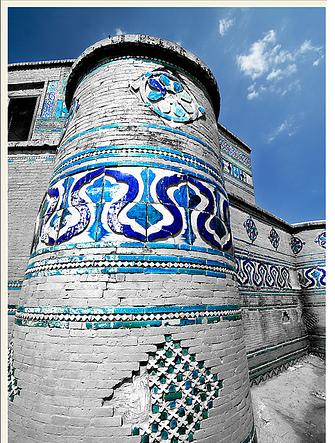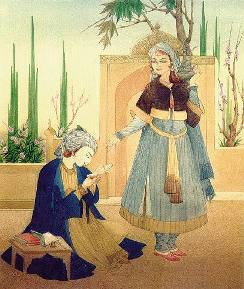Sunday, 28 June 2009:
In North Waziristan agency, three army officers among 16 soldiers were killed in an attack by the Taliban terrorists on the Wucha Bibi-bound convoy of security forces at Inzar Kas area. Officers who embraced shahadat include Lieutenant Colonel Tahir, Captain Abid and Lieutenant Zishan. Forces effectively responded the attack and killed 10 terrorists. 12 Soldiers embraced shahadat yesterday while 4 succumbed to injuries later in the Combined Military Hospital, taking the toll to 16.Some comments:source: pkpolitics
Blast reported in Islamabad/Rawalpindi - Source Geo TV
Express TV News reports: The explosion occurred when a suicide bomber hit his motorcycle with a bus near Chuhrr Chowk in the area of Rawalpindi Garrison. The bus was carrying persons of Heavy Mechanical Complex (HMC). Five persons are reported killed on the spot while twenty injured. About ten private vehicles were also affected by the blast.
According to Sheik Rashid, offices of sensitive institutions are in the vicinity of the incident. The timing and place of the explosion may point to an original target other than the HMC bus.
2 July 2009 at 11:33 am
rafay79 said:
Not again!!!!!!!
2 July 2009 at 11:38 am
Mullah Omar said:
Damn ! this must be the work of RAW+CIA+MOSSAD agents working on Zionists’ agenda to destabilise Pakistan so that Islamic Atom Bomb can be destroyed !
2 July 2009 at 1:21 pm
Adnan Arshad Mansoori said:
rafay79 said:Not again!!!!!!!
As the following fear of the West plus their Existence in South Asia we must be ready over & over again because this is a battle of Nerves & yet not has been finally decided who has been declared defeated clearly & whose nerves are more stronger to another one, whether Taliban/Alqaida or the West. The time is most appropriate Judge. Therefore be prepare for such news.
http://www.youtube.com/watch?v=N704fjRECKw&feature=PlayList&p=A1D57814D2700340&playnext=1&playnext_from=PL&index=49
2 July 2009 at 1:27 pm
Ibn Muwaiya said:
@ Mulla Omar
Dear brother, I can understand that you are a true muslim and a sincere follower of Ulema I Haq and Talibans, but I must say that you should stop posting comments here or should learn some basics and implement the guidelines before posting comments.
Otherwise you are proving to be a ‘naadan dost’ who is damaging the mission of ulema I haq and Talibans.
1- stop using this ID of mulla Omar. Brother, if you openly use this ID, liberal fascist and other sect people like brelvis and shia will make you target and result will be against the mujahidin in this propaganda war. You must realise that ‘disguise’ is the key to success in such hostile environment. Please think over it with a cool head.
2- You should not use words like deobandi openly, don’t say that you are deobandi, you should use the word ‘Sunni’ instead. Remember disguise is the key word. If you use word deobandi, it will again damage the cause of mujahidin. Also this wahabi term is used by our enemies, avoid it. Before zia shaheed (R.A) regime, in Pakistan we all were labelled as wahabi by shias and brelvis who used to be called as Sunnis. But since that time and with efforts of ulemai Haq, brelvis are no more termed as Sunnis and we are no more termed as wahabis. Take example of Kurram Agency, everyone in media uses the terms Sunni-Shia conflict and no one says it is Deobandi Shia conflict where as brelivs (previously known as Sunnis) has nothing to do with that. Now you understand the importance of disguise?. So in future, be careful in using these terms.
3- Don’t openly say that Imran is supporting talibans. It will create difficulties for him and other leaders who are supporting us. Please be sensible and use your brain my brother. His support for Talibans without accepting it openly is much more important for us. Similarly, don’t name gen hameed gul and other people who are not know to be in some religious party of Ulemai Haq.
4- Don’t claim responsibility of attacks on civilians. This way you are creating trouble for mujahideen brothers, Better put blame on America or India and say that how can a muslim do that etc. Remember , winning hearts and minds is the most important part of this War.
5- Don’t name SSP, Lashkar e jhangvi with talibans, it creates negative image of Talibans and also you help this way our enemies to make links of these organisations with Talibans. Remember this way we lose our main logic that Talibans were only created after 2004 (Imran Khan often uses this very successfully). Please be sensible.
6- Don’t try to ridicule other brothers who are supporting our casue (Janu jerman, AAM, Haris Khan, javed Khan etc), United we stand, divided we fall. Unity is very important. Don’t create rifts within our ranks.
I hope, you will take my comments positively and re-design your strategy to counter propaganda of these ,Liberal fascists and mushrikeen.
2 July 2009 at 2:17 pm
Gul said:
All us muslims should really live in muslim lands, and quit infidel countries like France etc. What do you think brothers and sisters? We should practice the freedoms we cherish either in our own countries or other muslim countries.
2 July 2009 at 2:53 pm
bhola said:
I say kill all the animals, little ones and the big ones, the one legged and the two legged, kill them all. Let only humans live in Pakistan
2 July 2009 at 3:32 pm
Adnan Arshad Mansoori said:
Ibn Muwaiya said to Mullah Omar: ……………..Don’t try to ridicule other brothers who are supporting our cause (Janu Jerman, AAM, Haris Khan, Javed Khan etc), United we stand, divided we fall. Unity is very important. Don’t create rifts within our ranks…………………
Thanks for the compliments, your comments regarding Divide & Unity quiet impressive wordings which is indicating your Far Sightedness!
2 July 2009 at 4:30 pm
iEscape said:
@MU, @IM, @AAM(آم) & Others,
Sarcasm is the evolution of survival skill. Pkp members and their future generations are going to outlast humanity and many animals.
2 July 2009 at 4:35 pm
Gul said:
iEscape
Hats off! You belong to the rare minority at pkp that picks up on, and understands, sarcasm.
2 July 2009 at 5:47 pm
Mullah Omar said:
@Brother Yazid (Ibn Muwaiya)
I respect your concerns and am thankful to you for sparing your precious time in giving me some very Islamic advices !
You have called me ‘nadaan dost’ which is not correct I can’t do hypocrisy and can’t disguise myself !
I’m a Taliban supporter and believe in true ideology of Deoband !
I’m sorry if you think my openness will harm cause of Talibans and deoband/wahabiism !
1- Ameer-ul-Momineen Hazarat Mullah Umer is my leader and I don’t feel ashamed of choosing Mullah Omar as my ID !
2- In order to differentiate true ideology from heretic ideologies it’s need of time to call a spade a spade i.e. we need to openly propagate that Deobandiism is in fact the only true Islam all others are misguided ideologies !
3- Imran Khan is proud deobandi and he himself openly support Talibans then what’s your problem if I support him ??
4- Talibans never killed any innocent, they only kill heretics and Kafirs !
5- SSP & Lashkar-e-Jhangvi have been doing great service for the cause of true ideology of deoband and they have been supporting our Taliban Mujahaideen relentlessly !
We should praise and acknowledge their services !
6- I don’t ridicule any muslim (read deobandi/wahabi) brother !
I just want my brothers to stop doing hypocrisy and be straight forward !
May Allah give courage to us All to fight the heretics and Kufaar !
3 July 2009 at 6:57 am
Adnan Arshad Mansoori said:
Bro.Mullah Omar:
If You know the difference between BOLDNESS/JAWAN-MARDI & STUPIDITY/BAIQUOFI i.e. more than enough for you, me & others who are like-minded us.
As above the sincere brother =Ibn Muwaiya= tried to elaborate before you, this is an established fact of the matter who are extra ordinary brave/out spoken they die usually in young or maximum at middle age e.g. Tipu Sultan King Alexander age.
No one can teach you as a vth/vith class student.
3 July 2009 at 8:28 am
Mullah Omar said:
@Bro AAM
Thanks for your comments !
However, it’s my belief that it’s better to live like a Lion for a Day than to live like a jackal for Hundred Years !
Sarfarooshi Ki Taman’na Ab Hamaray Sar May Hay
Dekhna Hay Zor Kitna Baz’oyay Qatil May Hay !
Imran Khan Zinda Ba’ad
Taliban Pa’inda Ba’ad !
3 July 2009 at 10:24 am
naughtypakistani said:
@Mullah Omar- You are the only Mullah I have seen who is not hiding his real intentions. This makes world simple, avoiding Munafiqat which your other “brothers” are doing (e.g. Janu Jerman, AAM, Haris Khan, Javed Khan) and teaching (Ibn Muwaiya etc.).
You guys use name of Deoband to propagate your agenda of grabbing power. Check the following link and and listen what Ulema-e-Deoband say about you people (Taliban- Jihalat zyada, Islam kam):
http://www.bbc.co.uk/urdu/pakistan/2009/06/090617_wusat_piece_as.shtml
3 July 2009 at 10:49 am
Mullah Omar said:
@naughtypakistani
It seems Ulema-e-Deoband in India are doing some hypocrisy !
Let me tell you leaders of JUI-F, JUI-S, JI, PTI, SSP, Lashkar-e-Jhangvi, Jaish-e-Mohammad, and renowned Deobandi scholars like Mufti-e-Azam Pakistan Mufti Rafi Usmani, Mufti Taqui Usmani, Sheikh-ul-Hadees Moulana Saleem ullah Khan, Sheikh-ul-Hadees Moulana Asfandyar Khan, Mufti Haneef Jalandhri and others have never condemned and issued Fatwas against Mujahadeen-e- Taliban !
Moreover, after the signing of NAR in Swat leading Deobandi scholors went to Swat and congratulated Talibans there !
zainengineer said:@Mullah Omar
I am a practicing deobandi. I favour operation against taliban. Who was the first Alim killed by Taliban? They first killed Maulana Hassan Jan who was a deobandi scholar. They killed him because he was against suicide bombing against muslims.
Here is an ‘eye opener’ for you. Lets see what ‘ACTUAL DEOBANDI’ say. What can be more original deobandi that deobandi madrassah itself. Read following
http://www.bbc.co.uk/urdu/columns/2009/05/090524_baat_say_baat_sen.shtml
This is deoband madrassah website http://www.darululoom-deoband.com/
And this is deobandi participating in elections in india http://www.darululoom-deoband.com/urdu/news/shownews.php?id=34
So much for that ‘kafir democracy’ concepts of idiot ’sufi muhammad’.
Don’t potray deobandi negatively. Talibans are Jahil. They are more like ‘Kharijites and less like ‘deobandi’ .
I hope after reading this information you will become a ‘true’ deobandi.
Regards
Zain
Read more...
